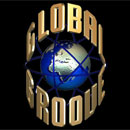Sir James Shand MBE (January 28, 1908—December 23, 2000) was a Scottish musician who played traditional Scottish dance music on the accordion.
Early life
James Shand was born in East Wemyss in Fife, son of a farm ploughman turned miner. One of nine children, they soon moved to the burgh of Auchtermuchty.The town is also known as the birthplace of the brothers Charlie and Craig Reid of The Proclaimers and now boasts a larger than life-sized sculpture of Shand. His father was a skilled melodeon player. Jimmy started with the mouth organ and soon played the fiddle. At the age of 14 he had to leave school and go down the mines. He played at social events and competitions. His enthusiasm for motor-bikes turned to an advantage when he played for events all round Fife. In 1926 he did benefit gigs for striking miners and was consequently prevented from returning to colliery work. One day Jimmy and a friend were admiring the instruments in the window of Forbes' Music Shop in Dundee. His friend said "It wouldn't cost you to try one". Jimmy walked in and strapped on an accordion. The owner heard Jimmy and immediately offered him a job as travelling salesman and debt-collector. He soon acquired a van and drove all over the north of Scotland. He switched to the British chromatic button accordion*, an instrument he stuck with for the rest of his life.
Early musical career
He failed an audition for the BBC because he kept time with his foot. At a time when gramophones were very much luxury items he made two records for the Regal Zonophone label in 1933. His career took off when he switched to making 78s for the Beltona label (1935 - 1940). Most of the Beltona recordings were solo, but he experimented with small bands. This boosted sales. He appeared in a promo film shown in cinemas. While the image showed his fingers moving in a blur, Jimmy was disappointed to hear the sound track playing a slow air. He was prevented from joining the RAF by a digestive disorder, and spent the war years in the Fire Service. On New Year's morning on 1945 he made his first broadcast with "Jimmy Shand and Band". This was the first of many such BBC radio and television appearances.
Works
Soon after the war he became a full-time musician and adopted a punishing life-style later adopted by rock bands. He would play Inverness one night, London the next night and still drive the van back, at breakneck speed, to bed in Dundee. He took his trademark bald head, Buddy Holly specs and full kilted regalia, Scottish reels, waltzes, jigs and strathspeys to North America, Australia and New Zealand, including Carnegie Hall in New York. Now on the EMI/ Parlophone label, he released one single per month in the mid fifties, including his only top 20 hit - "The Bluebell Polka" (1955). It was produced by George Martin, who was later to work with the Beatles. He was awarded an MBE in 1962, the same year that he appeared on "Top of the Pops". This period is remembered affectionately by Richard Thompson, who played Shand tunes on "Henry the Human Fly" and "Strict Tempo". In 1991, Thompson paid tribute to Shand with an original song, "Don't Sit on My Jimmy Shands". In 1972 he went into semi-retirement. From then he played only small venues in out of the way places for a reduced fee. He was made a freeman of Auchtermuchty in 1974, North East Fife in 1980 and Fife in 1998. He became Sir Jimmy Shand in 1999. His portrait is in the Scottish National Gallery, close to Niel Gow. In 1983 he released a retrospective album with the cheeky title "The First 50 years". At the age of 88 he recorded an album and video with his son, "Dancing with the Shands". His signature tune was not "Kate Dalrymple", but "Bonnie Dundee".
More than 330 compositions are credited to Jimmy Shand. He recorded more tracks than the Beatles and Elvis Presley combined. In 1985, British Rail named a locomotive Jimmy Shand. He was dissatisfied with the chromatic button-key accordions available on the market in the 1940s so he designed his own one. The Hohner company still manufactures the "Shand Morino" to his specifications. There is a biography The Jimmy Shand Story: The King of Scottish Dance Music by Ian Cameron (2001). A number of his older recordings have been re-released by the Beltona Record Company.
Read more on Last.fm. User-contributed text is available under the Creative Commons By-SA License; additional terms may apply.

